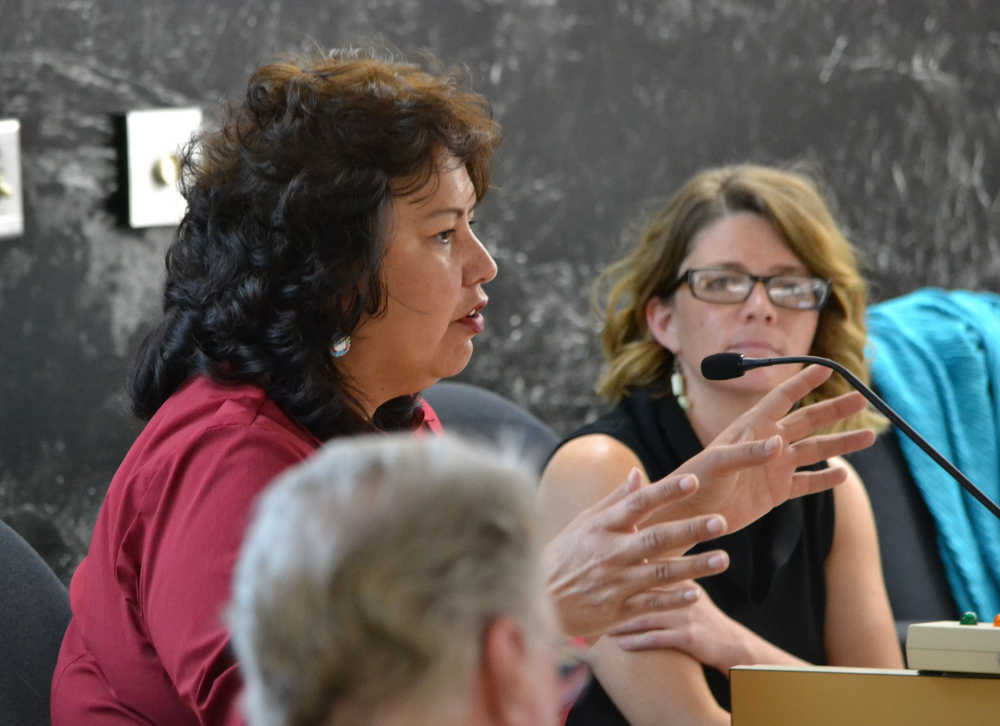The doors of the Thane Ore House, locked since the business closed in 2012, will soon be open again.
The Juneau Planning Commission approved a conditional use permit Tuesday night that will allow the Central Council of Tlingit and Haida Indian Tribes of Alaska plans to turn the boarded-shut building into a Native cultural immersion park.
“We want to lift our people up,” Myrna Gardner, Central Council’s business and economic development manager, told the commission. “We want to give them opportunities, and we want to be a good neighbor and member of the community.”
During summer months, the cultural center will use two 72-passenger buses to shuttle cruise passengers and tourist to the former Ore House, which will be renovated to look like a traditional long house. There, visitors will be able to eat at a restaurant, watch Native dance performances, buy souvenirs in a gift ship and watch people carve canoes and weave on site.
During winter months, the restaurant will close, but the center will still be open, providing a space for Native artists, such as canoe and totem pole carvers, to hone their crafts, Gardner said Tuesday.
“This is a long-term commitment of the tribe to teach those trades, and build those canoes,” she said, speaking before the commission.
The crux of the conditional use permit discussion Tuesday was whether the planned use for the land is in accordance with the zoning restrictions of the property, which is zoned waterfront industrial. The city’s waterfront zoning districts are reserved for businesses that are water-related, water-dependent or water-oriented. Waterfront industrial zones are “intended for industrial and port uses, which need or substantially benefit from a shoreline locations,” according to city code.
[http://juneauempire.com/local/2015-09-21/new-life-thane-ore-house]
The city’s Community Development Department recommended that the commission approve Central Council’s permit despite this zoning restriction because the manufacture of canoes fits under the umbrella of water-related uses.
“Although the carving of canoes and totem poles, and the production of other hand-made goods are not directly dependent upon access to the water, the cultural component of their production would be diminished if it were not located near the water,” city planner Allison Eddins wrote in a staff report accompanying the permit application.
Gardner and several people who testified in favor of the cultural center Tuesday made similar points.
“Who we are as Tlingit and Haida people is part of this water; it’s part of this land,” Gardner said.
The six commission members present approved the permit unanimously. Commissioners Carl Greene, Bill Peters and Paul Voelckers were absent.
• Contact reporter Sam DeGrave at 523-2279 or at sam.degrave@juneauempire.com.

